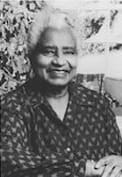Please note: Guided tours are temporarily on hiatus.
The Tuscaloosa Civil Rights History and Reconciliation Foundation offers four annual awards recognizing community members for their accomplishments in community service.
The following information applies to all awards; individual criteria and instructions can be found below.
Any past or present member of the Tuscaloosa community.
Nominations for these awards must be made by members of the Tuscaloosa community.
The Award Selection Subcommittee of the Advancement and Partnership Team will evaluate nominees for the awards.
A majority of the Award Subcommittee must recommend a nominee for an award to the Advancement and Partnership Committee.
February 15, 2023.
The award shall be made to the recipient at the Tuscaloosa Civil Rights History and Reconciliation Foundation Awards Ceremony and shall be in the form of an engraved plaque containing a citation directed specifically to the recipient, and such other recognition as determined by the Committee.
Foundation Service Awards

Rev. Thomas Linton Perseverance Award

Rev. T.Y. Rogers Trail Blazer Award

Bill Buchanan Service Award

Dr. Myrtle Gray Outstanding Youth Award
The submissions for 2024 are now closed, please be sure to check back next year for the 2025 award nominations.
Nominate a noteworthy member of the community for one of the Tuscaloosa Civil Rights History and Reconciliation Foundation Awards. Nominations are due by February 15, 2023. A person may be nominated for more than one award, but, if selected, the person will receive only one award. Posthumous nominations are accepted.
Describe in 250 words or less why the nominee should receive the award. The letter should include the nominee’s community service and contributions to the community; and how it aligns with the purpose, eligibility, and/or criteria of the award.
One support letter is required (250 words or less); a second support letter from another person is optional, but strongly encouraged. To assist the selection committee in its deliberations, the support letter(s) should contain information not addressed in the recommendation letter. The support letter(s) should list of nominee’s most significant achievements.
The Tuscaloosa Civil Rights History and Reconciliation Foundation is a non-profit 501(c)(3) organization.
Mailing Address: P O Box 71103, Tuscaloosa, AL 35407